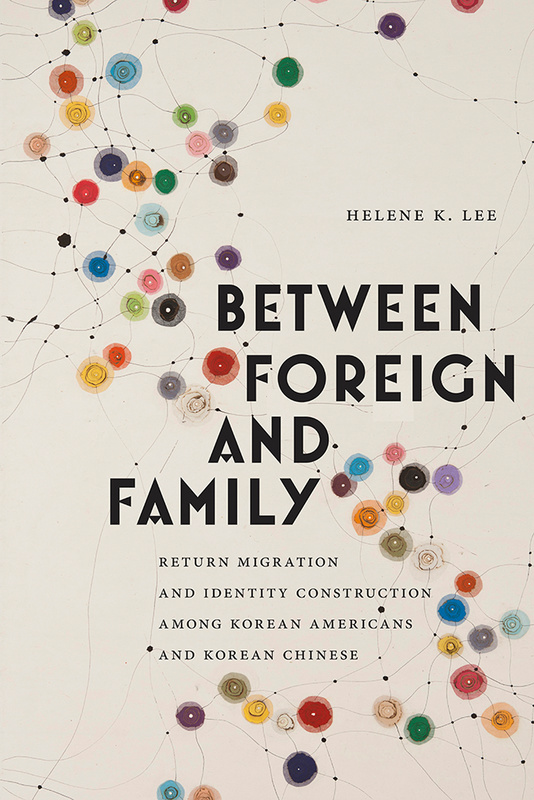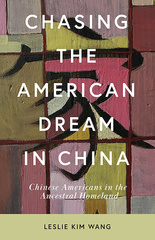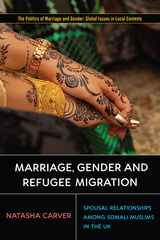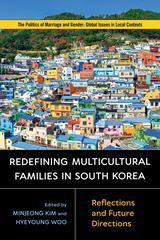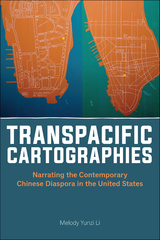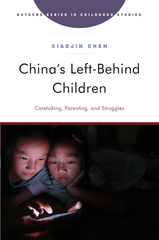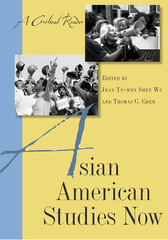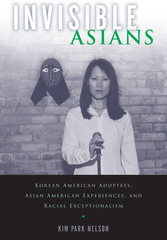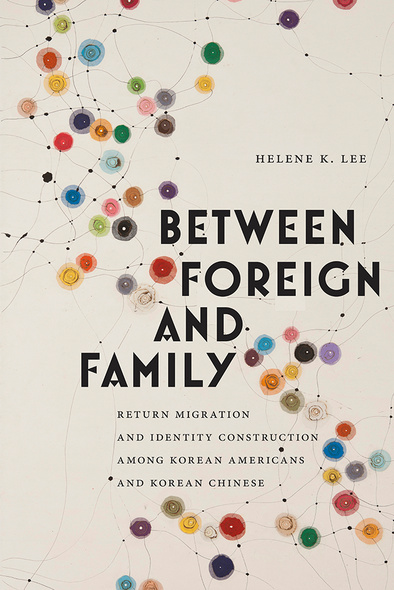
192 pages, 5 1/2 x 8 1/2
2 tables
Paperback
Release Date:31 Jan 2018
ISBN:9780813586137
Hardcover
Release Date:31 Jan 2018
ISBN:9780813586144
Between Foreign and Family
Return Migration and Identity Construction among Korean Americans and Korean Chinese
SERIES:
Asian American Studies Today
Rutgers University Press
Winner of the 2019 ASA Book Award - Asia/Asian-American Section
Between Foreign and Family explores the impact of inconsistent rules of ethnic inclusion and exclusion on the economic and social lives of Korean Americans and Korean Chinese living in Seoul. These actors are part of a growing number of return migrants, members of an ethnic diaspora who migrate “back” to the ancestral homeland from which their families emigrated. Drawing on ethnographic observations and interview data, Helene K. Lee highlights the “logics of transnationalism” that shape the relationships between these return migrants and their employers, co-workers, friends, family, and the South Korean state.
While Koreanness marks these return migrants as outsiders who never truly feel at home in the United States and China, it simultaneously traps them into a liminal space in which they are neither fully family, nor fully foreign in South Korea. Return migration reveals how ethnic identity construction is not an indisputable and universal fact defined by blood and ancestry, but a contested and uneven process informed by the interplay of ethnicity, nationality, citizenship, gender, and history.
Between Foreign and Family explores the impact of inconsistent rules of ethnic inclusion and exclusion on the economic and social lives of Korean Americans and Korean Chinese living in Seoul. These actors are part of a growing number of return migrants, members of an ethnic diaspora who migrate “back” to the ancestral homeland from which their families emigrated. Drawing on ethnographic observations and interview data, Helene K. Lee highlights the “logics of transnationalism” that shape the relationships between these return migrants and their employers, co-workers, friends, family, and the South Korean state.
While Koreanness marks these return migrants as outsiders who never truly feel at home in the United States and China, it simultaneously traps them into a liminal space in which they are neither fully family, nor fully foreign in South Korea. Return migration reveals how ethnic identity construction is not an indisputable and universal fact defined by blood and ancestry, but a contested and uneven process informed by the interplay of ethnicity, nationality, citizenship, gender, and history.
In this distinct contribution to the field of transnational studies, Helene K. Lee shows how ethnic identity comes to take on a very different significance depending on one's nationality and class position.
Lee examines the expectations and experiences of two groups, whose members think of themselves as Korean.
The book merits reading to encourage reflection on the current social situation and pondering of the possible transformation of Koreanness in the future.'
Lee’s study is a crisply written and cogently argued analysis that makes an original contribution to a range of interrelated subjects that have preoccupied social scientists for decades, including diasporic nationalism, return migration, and (im)migrant incorporation.
Lee’s book aptly suggests that we should try to imagine the concept of homeland beyond the simple binary between family and foreign, us and them, and in and out.
HELENE K. LEE is an assistant professor of sociology at Dickinson College in Carlisle, Pennsylvania.
Introduction 1
1. The Premigration Condition 14
2. Return Migrants in the South Korean
Immigration System and Labor Market 39
3. Of “Kings” and “Lepers”: The Gendered
Logics of Koreanness in the Social
Lives of Korean Americans 67
4. “Aren’t We All the People of Joseon?”:
Claiming Ethnic Inclusion through
History and Culture 97
5. The Logics of Cosmopolitan Koreanness
and Global Citizenship 114
Conclusion: Finding Family among Foreigners 134
Acknowledgments 143
Appendix A: Research Methods 147
Appendix B: Characteristics of Respondents 149
Notes 155
References 167
Index 175
1. The Premigration Condition 14
2. Return Migrants in the South Korean
Immigration System and Labor Market 39
3. Of “Kings” and “Lepers”: The Gendered
Logics of Koreanness in the Social
Lives of Korean Americans 67
4. “Aren’t We All the People of Joseon?”:
Claiming Ethnic Inclusion through
History and Culture 97
5. The Logics of Cosmopolitan Koreanness
and Global Citizenship 114
Conclusion: Finding Family among Foreigners 134
Acknowledgments 143
Appendix A: Research Methods 147
Appendix B: Characteristics of Respondents 149
Notes 155
References 167
Index 175

